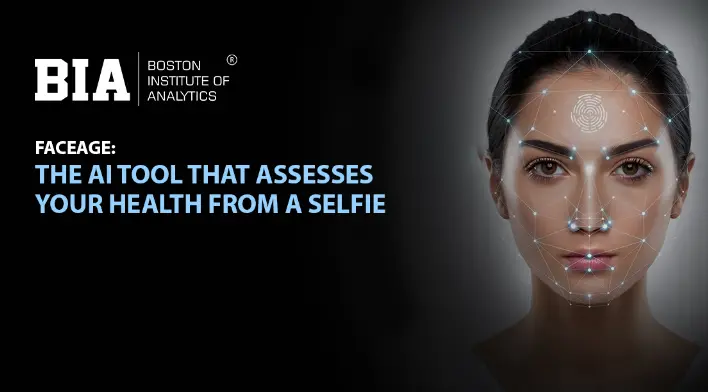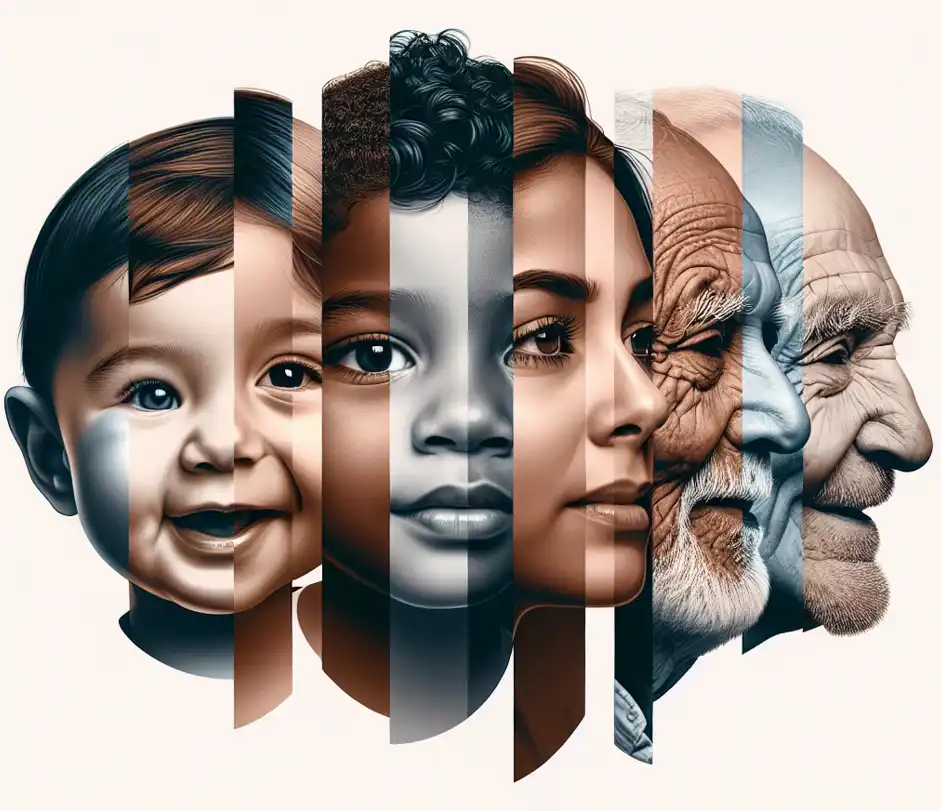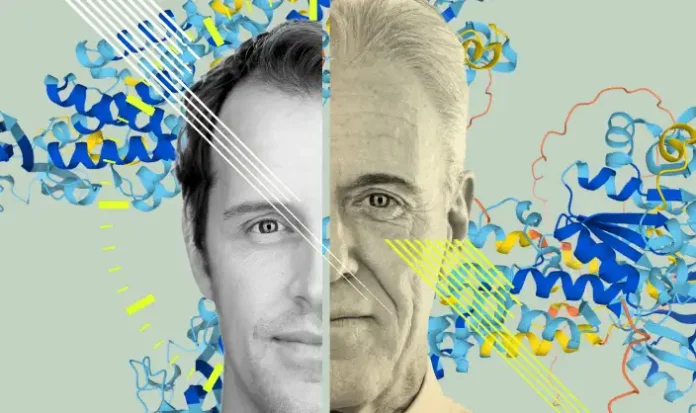A biological age test measures how well your body is functioning compared to your actual age. Researchers have developed a new tool that uses biomarkers to accurately calculate biological age, offering insights into your health and aging process.
KumDi.com
What if your birthday didn’t tell the full story of how old you really are? A biological age test goes beyond the calendar, measuring your body’s actual functional age. Now, scientists have created a new tool to calculate biological age using key health indicators, offering a deeper understanding of how your body is aging—and what you can do about it.
Understanding your biological age can be a game-changer in how you approach health and wellness. Unlike chronological age, which simply counts the years since your birth, biological age reflects the actual condition of your body and its systems. Recent advancements in research have led to the development of innovative tools that can accurately measure biological age, providing insights that can help you make informed lifestyle choices. This article delves into the latest findings and tools that can help you gauge your biological age and what it means for your health.
Table of Contents
The Concept of Biological Age
Biological age is a measure of how well your body is functioning relative to your chronological age. It takes into account various factors, including genetics, lifestyle choices, and environmental influences. While two individuals may share the same chronological age, their biological ages can differ significantly based on their health and lifestyle.
Why Biological Age Matters
Understanding your biological age can provide valuable insights into your overall health. Here are a few reasons why it matters:
- Health Risks: A higher biological age can indicate a greater risk for chronic diseases, such as heart disease, diabetes, and certain cancers.
- Longevity: Knowing your biological age can help you make lifestyle changes that may extend your lifespan and improve your quality of life.
- Personalized Health Strategies: By understanding your biological age, you can tailor your health strategies to better suit your body’s needs.
Recent Advances in Measuring Biological Age
Researchers have made significant strides in developing tools to measure biological age accurately. One of the most promising tools is the Health Octo Tool, which utilizes a variety of metrics to assess an individual’s biological age.
The Health Octo Tool
The Health Octo Tool is a comprehensive health assessment tool that combines data from physical exams, lab tests, and medical history to determine biological age. It focuses on a concept known as health entropy, which refers to the accumulation of molecular and cellular damage over time.
Key Features of the Health Octo Tool
- Multi-Dimensional Metrics: The tool evaluates multiple organ systems, including cardiovascular, respiratory, and central nervous systems, to provide a holistic view of health.
- Body Organ Disease Number: This score reflects the number of organ systems affected by disease, offering insights into overall health status.
- Speed-Body Clock: This metric assesses how biological age impacts walking speed, a common measure of physical function in older adults.
Accuracy and Reliability
The Health Octo Tool has demonstrated impressive accuracy, predicting disability and mortality with over 90% accuracy. This level of precision makes it a valuable resource for healthcare providers and individuals alike.
The Role of Epigenetics in Biological Age Measurement
Epigenetics plays a crucial role in understanding biological age. It refers to changes in gene expression that do not involve alterations to the underlying DNA sequence. Researchers have developed epigenetic clocks that measure biological age based on DNA methylation patterns.
Cell-Type Specific Epigenetic Clocks
Recent research has introduced cell-type specific epigenetic clocks, which allow for a more nuanced understanding of how different cell types age. This approach provides insights into diseases such as Alzheimer’s and liver conditions, paving the way for targeted therapies.
Benefits of Cell-Type Specific Clocks
- Detailed Insights: By analyzing specific cell types, researchers can identify which cells are most affected by aging and how this contributes to various diseases.
- Targeted Therapies: Understanding the aging process at the cellular level can lead to more effective treatments for age-related diseases.
The Impact of Lifestyle on Biological Age
Your lifestyle choices significantly influence your biological age. Factors such as diet, exercise, sleep, and stress management can either accelerate or slow down the aging process.
Healthy Eating Habits
A balanced diet rich in nutrients can help maintain a youthful biological age. Here are some dietary tips:
- Mediterranean Diet: Emphasizing fruits, vegetables, whole grains, and healthy fats can promote longevity.
- Limit Processed Foods: Reducing the intake of processed foods and sugars can help mitigate inflammation and oxidative stress.
Regular Physical Activity
Engaging in regular exercise is one of the most effective ways to lower your biological age. Aim for a mix of cardiovascular, strength, and flexibility training.
- Cardiovascular Exercise: Activities like walking, running, or cycling can improve heart health and overall fitness.
- Strength Training: Building muscle mass can enhance metabolism and support bone health.
Stress Management and Sleep
Chronic stress and poor sleep can accelerate biological aging. Implementing stress-reduction techniques and prioritizing sleep can have a profound impact on your biological age.
- Mindfulness and Meditation: Practices like yoga and meditation can help reduce stress levels.
- Sleep Hygiene: Establishing a regular sleep schedule and creating a restful environment can improve sleep quality.
Innovative Tools for Measuring Biological Age
In addition to the Health Octo Tool, several other innovative tools have emerged to help individuals assess their biological age.
FaceAge: An AI-Driven Approach

FaceAge is a groundbreaking AI tool that predicts biological age by analyzing facial features. Developed by researchers at Mass General Brigham and Harvard Medical School, this tool uses deep learning algorithms to assess how a person’s appearance correlates with their biological age.
How FaceAge Works
- Facial Analysis: The algorithm analyzes thousands of facial features, including wrinkles and skin texture, to estimate biological age.
- Clinical Applications: FaceAge can assist oncologists in tailoring treatments based on a patient’s biological age, potentially improving outcomes.
Index Biological Age Test
The Index Biological Age Test, developed by Elysium Health, measures biological age through a non-invasive saliva test. This test analyzes DNA methylation patterns to provide insights into overall health.
Features of the Index Test
- System Age Scores: The test provides biological age scores for nine different systems, including the brain, heart, and immune system.
- Actionable Insights: Users receive evidence-based lifestyle recommendations to help them improve their health and longevity.
The Future of Biological Age Measurement
As research continues to evolve, the future of biological age measurement looks promising. New technologies and methodologies are being developed to provide even more accurate assessments of biological age.
Personalized Health Strategies
The ability to measure biological age accurately will enable healthcare providers to create personalized health strategies tailored to individual needs. This could lead to more effective interventions and improved health outcomes.
Ongoing Research and Development
Researchers are continually exploring new ways to measure biological age and understand the underlying mechanisms of aging. This ongoing research will contribute to the development of innovative therapies and preventive measures.
Conclusion
Understanding your biological age is more than just a number; it’s a powerful tool that can guide your health decisions and lifestyle choices. With advancements in research and technology, measuring biological age has become more accessible and accurate than ever before. By leveraging tools like the Health Octo Tool, FaceAge, and the Index Biological Age Test, you can gain valuable insights into your health and take proactive steps to enhance your well-being. Embrace the knowledge of your biological age and use it to empower your journey toward a healthier, longer life.

FAQs
What is a biological age test?
A biological age test evaluates your body’s physiological condition, revealing how well you’re aging compared to your chronological age. It uses markers like blood pressure, metabolism, and inflammation.
How does the new biological age measurement tool work?
The new biological age tool uses advanced biomarkers and AI algorithms to assess aging indicators like DNA methylation and metabolic function, providing a highly accurate biological age measurement.
Why is biological age more important than chronological age?
Your biological age reflects your real health status, unlike chronological age. It helps identify early signs of aging, allowing for proactive lifestyle or medical changes to improve longevity.
Can I calculate my biological age at home?
Yes, several biological age test kits and apps offer at-home testing. However, the most precise results come from lab-analyzed tools developed by scientists using comprehensive biomarkers.
How can I reduce my biological age?
You can reduce your biological age by improving sleep, reducing stress, eating a nutrient-rich diet, exercising regularly, and avoiding smoking. These habits support better aging and body function.





